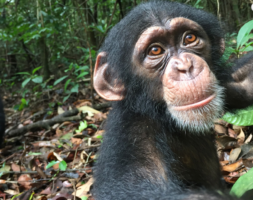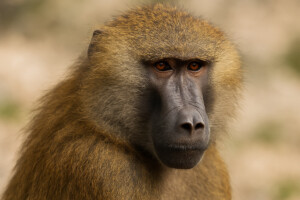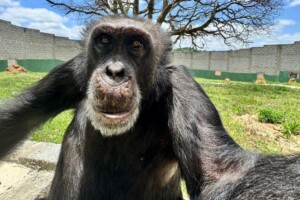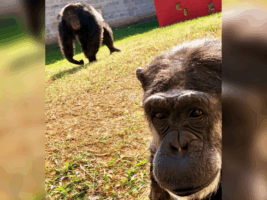Congo Democratic Republic: 523 parrots are confiscated

An illegal shipment of 523 endangered African Grey parrots was confiscated September 18 in the Democratic Republic of Congo and taken to the Lwiro sanctuary, placing an incredible strain on staff and resources.
Lwiro is already home to over 100 orphaned chimpanzees and monkeys, but has no provision for birds. The parrots were bound for Singapore, according to the forged CITES documents that accompanied their crates. The shipment was seized by government authorities at a regional airport in Kavumu as it was being loaded onto a cargo plane.
Lwiro is currently applying for membership to the Pan African Sanctuary Alliance (PASA), and works closely with PASA on a variety of conservation and education initiatives.
“We cannot do this alone,” said Carmen Vidal, manager of Lwiro. “We didn’t have much warning. We were just told these parrots are coming on Saturday and then they were here. We are doing the best we can.”
Eighteen of the birds were found to be dead in the crates or died shortly thereafter, leaving 505 that need care. Most were tethered by a string to one wing and lacked food or water.
PASA is consulting with the World Parrot Trust (WPT) to get information and expertise to Lwiro as quickly as possible. To support Lwiro’s rescue work, donations can be made on-line .
Over the past 18 months, three other confiscations sent 1,503 African Grey parrots to the Limbe Wildlife Centre in Cameroon, taxing that sanctuary to the breaking point.
PASA executive director Doug Cress said he is concerned that the recent parrot seizures are following established black-market routes for apes, across Africa from west to east and out to the Middle East and Asia.
“This proves that these illegal trade routes are still active,” Cress said. “The question for us is, have the poachers switched to parrots? Or are the parrots all we’re catching now, and meanwhile apes are getting through? Either way, it’s alarming.”
African Grey parrots are found throughout Central and West Africa, but have been heavily hunted for the pet trade in recent years. Experts believe that up to 21 percent of the wild population is captured each year. Trade in wild-caught African Grey parrots is banned by the Convention on International Trade in Endangered Species (CITES).

 Español
Español
 Português
Português








